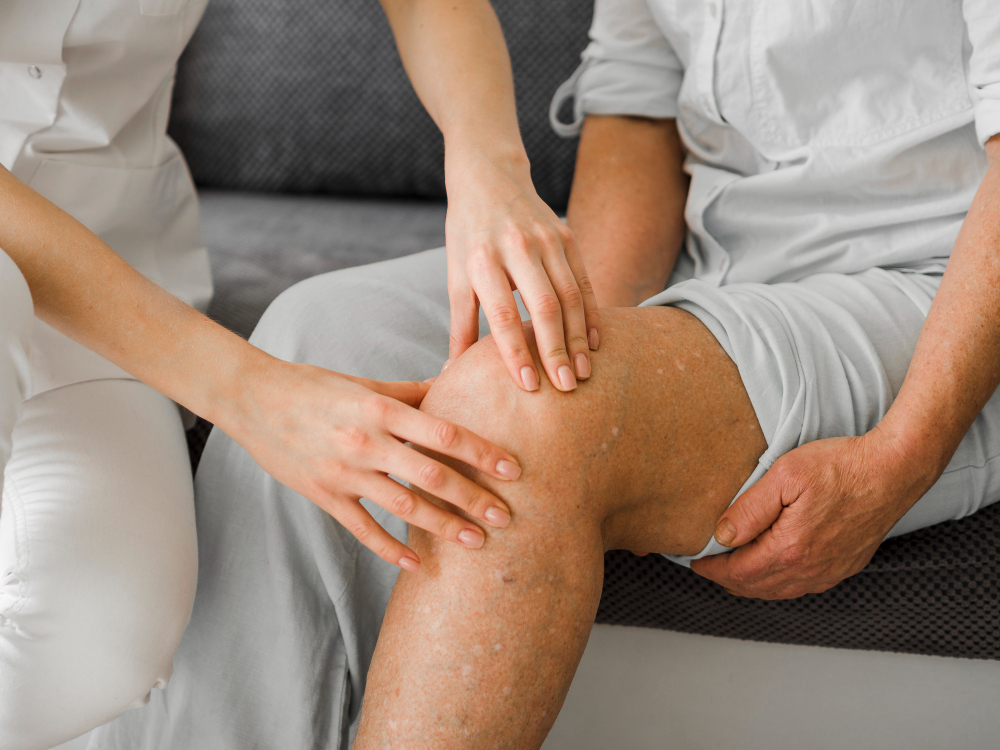Knee arthritis, especially osteoarthritis, is a severe condition that affects millions of people around the world. It causes gradual breakdown of the knee joint's cartilage, leading to pain, stiffness, and reduced mobility. Common treatments like pain relievers, physical therapy, and surgery provide varying levels of relief but often don't address the main issue: the degeneration of joint tissues. Regenerative medicine offers a promising new approach to repair and regenerate damaged tissues, providing hope for those suffering from knee arthritis.
What is Regenerative Medicine?
Regenerative medicine is a branch of medical science focused on repairing, replacing, or regenerating damaged tissues and organs. It utilizes the body’s natural healing mechanisms to restore function and relieve pain. The primary tools of regenerative medicine for knee arthritis include stem cell therapy, platelet-rich plasma (PRP) therapy, and tissue engineering.
- Stem Cell Therapy: Stem cell therapy involves using the body's stem cells to repair damaged tissues. These cells, often harvested from the patient's bone marrow or adipose (fat) tissue, have the unique ability to develop into different types of cells, including cartilage cells. When injected into the arthritic knee, stem cells can potentially reduce inflammation, slow the progression of arthritis, and promote the regeneration of healthy cartilage. Patients undergoing stem cell therapy for knee arthritis have reported significant improvements in pain relief, joint function, and overall quality of life. The procedure is minimally invasive, typically involving a single injection and a short recovery period, making it an attractive alternative to knee replacement surgery.
- Platelet-Rich Plasma (PRP) Therapy: Platelet-rich plasma (PRP) therapy is an advanced treatment in regenerative medicine. This treatment involves taking a small amount of the patient's blood, processing it to concentrate the platelets, and then injecting the platelet-rich plasma back into the affected knee. Platelets contain growth factors that are essential for healing and tissue regeneration. PRP injections can reduce pain and improve knee function in people with osteoarthritis. The treatment is simple and quick, with minimal side effects, as it uses the patient’s own blood. Many patients experience noticeable improvements within weeks of treatment, and the effects can last for several months.
- Tissue Engineering and Cartilage Regeneration: Tissue engineering is a more advanced part of regenerative medicine. Its goal is to create new, healthy tissue to replace damaged cartilage. This can involve using scaffolds made of materials that work well with the body and support the growth of new cells. Researchers are looking into different ways to enhance cartilage regeneration in the knee, such as 3D printing and using materials that are compatible with the body.
While regenerative therapy for knees offers promising results, they are often most effective when combined with other treatments. Physical therapy can help strengthen the muscles around the knee, providing better support and reducing strain on the joint. Weight management and lifestyle modifications, such as low-impact exercises and a balanced diet, can also enhance the outcomes of regenerative treatments. The field of regenerative medicine is rapidly evolving, with ongoing research aimed at improving the effectiveness and accessibility of these treatments. By harnessing the body's natural healing capabilities, regenerative therapies improve quality of life.
Persistent pain in your knee joints can make life quite challenging. Every activity that you perform becomes a difficult task. With early diagnosis and treatment, you may potentially be able to prevent damage to your joint tissues and minimize the pain and level of disability resulting from arthritis. The right treatment for this health condition can greatly reduce your symptoms.
Learn more about arthritis and its causes, symptoms, and treatment options by joining the Regenerative Masters community. Contact us today by sending us your details at [email protected].





Comments